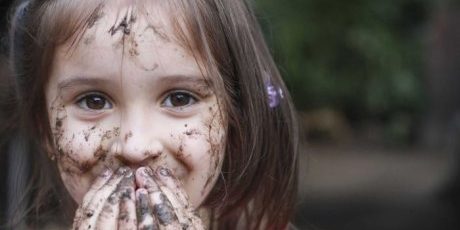Is our obsession with safety and providing sanitised spaces for children actually hindering their development? Let them fail, fall and feel their own way through and we might reverse a worrying trend, writes Rachael Sharman.
Increasingly our home, built and school environments in Australia are being sanitised for child’s play, with litigation risk being a key driver.
Many modern kindergartens now come equipped with padded poles, super-safe benign play activities, and a raft of totally un-fun rules: no running, no climbing, no dirt, hands to yourself etc.
However, can these short-term measures supposedly to prevent minor harms lead to long-term substantial problems – especially in terms of psychosocial functioning?
In short, is our “safety” obsession helping or hindering?
Australia has seen some alarming backslides in child development over the last couple of decades: physical skills are on the decline and obesity on the rise, while cognitive/academic skills are also deteriorating.
Further down the track we are seeing ever-increasing mental health problems in older childhood/adolescence, and persistently high unemployment rates in young adults. Just to add insult to injury, Australia recently saw an unexpected spike in suicide rates. This has lead many to ponder: what on earth could be going so wrong in such a wealthy first-world country?
Might over-interfering strategies to prevent “injury” actually hinder a child’s capacity to learn, train and build efficacy? In fact, is over/helicopter/bulldozer parenting (and the flow-on effects of parental anxiety into schools) downright harmful to the future of young Australians?
Early brain development
The way in which our brain develops has ensured that we are arguably the most successful species on the planet. We have achieved this status because of our brain’s ability to “wire itself” to the environmental conditions in which it finds itself.
Our synaptic and neuronal development within the brain explodes during the first year of life, and then something rather curious starts to happen. Synapses begin to “prune” themselves. The connections that are used frequently remain and strengthen (just like a well-exercised muscle), and those that are unused wither and drop away.
Hence the concept of “critical periods” – if you don’t learn a skill at the most sensitive age, the ability to learn it later is compromised or possibly even lost forever (e.g. think of bilinguals v late-learners of a second language).
With this understanding of early brain development in mind, is it finally time to think about the long-term harms caused by withholding key childhood learning experiences (e.g. risky play, fail-based learning, negotiating social squabbles)?
Children do not magically and spontaneously “know” how to deal with stressors in their life. They need experience and training. They need to be challenged, fail and learn how to overcome and adapt their behaviours to get the result they want.
Why failure is important
When your child fails they need to figure out what they did wrong, learn how to change their behaviour to get it right next time, and manage the negative emotions that come along with these challenging cognitive tasks. Repeated failure might also teach your child that they can’t always get what they want, helping to build realistic expectations and self-assessment.
When we “protect” children from failure, we prevent them from learning how to master important life skills. We are then amazed to find that we reap what we sow: typically in the form of a risk-averse, psychologically fragile, socially awkward teenager, untrained to deal with even the most basic life challenges.
Lessons from overseas
There are some strong movements internationally that seek to buck this trend. Forest kindergartens in Europe, for example, let children free-roam and engage in activities that would make an Australian OH&S expert faint.
Children spend their day in an unstructured natural environment: rain, hail or shine. They whittle sticks with knives (real knives), and learn how to light fires, climb trees and ropes, fall over in the water and get muddy. They get into social squabbles (including throwing sticks and stones at each other) and work these out themselves (learning social skills).
Research into nature-based, unstructured play environments has proven more than just promising. Perhaps counter-intuitively (to some), children consistently demonstrate a lower risk of physical injury (because kids can and will learn to take responsibility for their own safety if you let them) and improvements in a raft of psychosocial skills, including lower rates of ADHD, less bullying, better emotional self-regulation, higher creativity and problem-solving skills.
It’s time to accept that our “protective” approach has been wholly counterproductive. Short-term “safety” measures have done little more than mediate farcical litigation claims, and infantilised our children into incompetence.
Governments need to remove the litigation threats to optimally challenging child’s play, so that children are free to explore, learn and thrive.
Dr Rachael Sharman is a lecturer and researcher in psychology, specialising in child/adolescent development.




